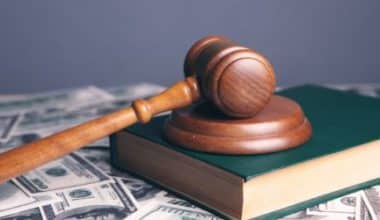A stock buyback occurs when a company uses its accumulated cash to buy back its shares from the market. An organization can reinvest in itself through a stock buyback, also known as a share repurchase. The amount of outstanding shares on the market is decreased as a result of the company absorbing the repurchased shares. Fewer shares are available on the market, increasing each investor’s relative ownership stake.
There are three ways for organizations and businesses to carry out a stock buyback:
- Tender Offer:
Through a tender offer, shareholders of corporations are given an offer, which asks them to submit all or a portion of their shares within a specific time frame. The offer includes a price range for the claims and the number of shares the company wants to repurchase. Investors who agree to tender their shares do so by stating the number of shares and the price they are willing to accept.
Following receipt of all offers, the company selects the best combination to purchase the shares at the most affordable price.
- Accelerated share buyback:
Instead of waiting for a block of shares to accumulate on the open market, a company may work with a dealer to quickly buy back a block of shares. The cost of the shares must first be covered by the company, but the dealer is then in charge of locating the shares.
- Open Market Buyback:
A business may purchase its shares on the open market at the going rate, which is frequently the case. But when a buyback is announced, the stock price surges because investors view it as a positive sign.
Is a Stock Buyback Good for Investors?
Yes, the following reasons are why stock buybacks are of good benefit to investors or shareholders:
#1. Stock Buybacks improve shareholder value:
In essence, companies that pursue share buybacks repurchases will have fewer assets on their balance sheets and a higher return on assets. Similarly, earnings per share will rise by lowering the number of outstanding shares while keeping profitability the same.
#2. It boosts Share Prices:
In this scenario, a company will then pursue a buyback program because it thinks its shares are undervalued. Share prices will rise when there is a higher demand for shares and a lower supply of them available.
For example, the Amazon Stock Buback in 2022 ensures that investors look forward to about $1 trillion in untapped value at the company.
#3. It provides stock security for investors:
Companies that pursue repurchase schemes give investors the impression that they have more cash on hand. Investors need not, at worst, be concerned about cash flow issues if a company has extra cash.
More significantly, it tells investors that the corporation believes that paying out dividends to shareholders is a better use of cash than reinvesting it in other assets. In essence, this supports the stock’s price and gives investors long-term security.
#4. No Stock Buyback Tax:
Lastly, since there is no cash return and no tax due, shareholders who choose not to sell their shares during a buyback are not subject to tax.
Do Stock Buybacks Increase Stock Price?
A Stock buyback lowers the total number of shares that the general public owns of a corporation. Each share of stock represents a portion of a corporation, therefore as more shareholders remain, their ownership percentage of the company grows.
Consequently, because investors are aware that a buyback or repurchase will increase earnings per share right away, the stock price may increase in the near future. Will the buyback result in a gain or loss for shareholders? It depends on whether the business received a fair value for its money.
Do I Lose My Shares in a Buyback?
Shareholders are not required to sell their shares back to the company in a share buyback; the company cannot make you do so. Companies do, however, pay a premium over the share’s market price to persuade investors to sell.
What are the Disadvantages of a Buyback?
Despite the fact that investors adore buybacks, they should be aware of a number of drawbacks.
#1. It’s a marketing ploy:
Share buybacks are frequently thought of as “marketing schemes.” Investors must exercise caution and avoid falling into its trap. As businesses occasionally pursue buybacks to artificially boost share prices.
#2. It does not benefit long-term investors:
Buybacks are frequently deceptive. Any share purchase made after buybacks is announced typically benefits short-term investors more than long-term ones. This gives the market the impression that earnings are increasing. The value ultimately suffers as a result of a buyback.
#3. It reduces the cash reserves of the company:
A company’s cash reserves are typically decreased by buybacks, leaving them less cushioned for difficult times. It degrades the appearance of its balance sheet in the process.
#4. It gives bad signals to investors:
It might imply that there are no profitable investment opportunities available to the company, which might be a bad sign for long-term investors hoping for capital growth.
#5. It shows a lack of confidence:
Additionally, it might send a bad message about how confident the business is in itself, and the investors might decide to sell their stake. The buyback procedure takes time and calls for regulatory agency approval as well as disclosures to stock exchanges.
Who Benefits From Stock Buybacks?
The companies benefit more from stock buybacks through the following ways:
Companies repurchase shares primarily for two purposes: to boost the share price or to defend the business against a hostile takeover. The value of outstanding shares, the dividend payment, and organizational control is likely to be impacted by a repurchase or buyback.
When they have cash on hand and the stock market is rising, companies frequently buy back shares.
Why Do Companies Do Stock Buybacks?
- A company’s stock price rises following a stock repurchase. This is true because there are now fewer shares available, which raises the price. Along with this, there may be stable or rising demand for the shares, which also drives up the price. The increase is typically short-lived and regarded as artificial as it doesn’t reflect the true valuation of the business.
- A company may also repurchase shares to raise the stock price and strengthen its financial position. These shares are frequently used for retirement plans and employee compensation. or the shares are later reissued on stock exchanges.
- Companies can increase shareholder value through share repurchases. The portion of profits that a company uses to repurchase shares has a favorable impact on the share price in normal market circumstances.
How Do Buybacks Help Shareholders?
Shareholders may be directly impacted by stock buybacks in a variety of ways, from their ownership percentage to the stock price. Buybacks frequently result in benefits for investors.
Consider it this way if you invest in individual stocks and are unsure whether a stock buyback is positive or negative. A buyback could be advantageous for shareholders if a publicly traded company is doing well, has extra cash on hand, and its shares are undervalued.
However, a company’s decision to repurchase shares of stock while ignoring other aspects of its operations or delaying investments in its future growth will probably deprive shareholders of value in the long run. Shareholders like you would be better served if a company held onto the cash for a rainy day if its shares are overvalued.
According to financial analysts, buybacks are generally viewed as positive for investors.
What are Dividends?
Dividends are a common way for cash-strapped businesses to return excess funds to investors while also maintaining shareholders’ interest in their stock. The after-tax profit of the company is used to pay dividends. This is crucial for investors seeking consistent cash flows, particularly for those who depend on them.
Advantages of Dividends
- Investors receive a consistent stream of cash thanks to the cash dividend.
- The shareholder is still able to receive consistent cash flows while maintaining their investment in the business.
- For investors who heavily rely on their investments to cover their living expenses, especially retired investors who may not have another source of income, receiving a cash dividend can be a significant incentive.
- A smaller dividend payout than a buyback enables the company to maintain a conservative capital structure each quarter as opposed to simply holding large sums of cash.
Why Buybacks Are Better Than Dividends?
After considering a few reservations and exceptional circumstances, it seems reasonable to conclude that buybacks are better than dividends for both companies and shareholders.
A buyback offer benefits both the company and the shareholders equally, making it an appealing option for both.
How Are Buybacks Better Than Dividends?
- Limiting the supply of stock, buybacks avoid a decline in its value.
- The company’s earnings per share (EPS) increased as a result of the decline in the number of outstanding shares. This is a positive sign for the company’s profitability and could eventually raise its share price.
- Management employs buybacks as a tactic to convey the idea that the stock is undervalued. If a stock is currently trading at $200 and the company announces a buyback at $250, for instance, it will immediately generate value for its shareholders, and the price will likely increase.
- It enables the business to utilize extra funds sitting idle due to a lack of opportunities as the company doesn’t make any extra money from idle cash. This holds true for businesses with excess cash, for example, the Apple Stock Buyback in 2022.
- Since fewer shares are held by the general public, it also gives management or the company more control and enhances the decision-making process.
- All shareholders receive cash payments from dividends, but only certain shareholders receive cash payments from share buybacks. A share buyback, on the other hand, is a decision made by investors as to whether they wish to participate or not.
Rules of Stock Buyback
- SEC regulations must be followed:
Companies may encounter issues with stock purchase programs because they could cause the SEC to become concerned about insider trading and stock manipulation. So getting a written agreement from the broker that the program will follow SEC Rules is a good idea.
- Information must be made public before buyback:
The company shouldn’t buy back stocks if it has material information that has not been made public.
- Transparency to the corporate treasury:
The maximum sum of money to be spent or the maximum number of shares to be purchased should be stated in the board authorization for the purchase of that company’s stock for the corporate treasury.
- HOW CAN GOOGLE ADS HELP YOU ADVANCE YOUR BUSINESS?
- QUALIFIED SMALL BUSINESS STOCK (QSBS): How It Works
- HOW MUCH DO PROPERTY MANAGERS MAKE: Income Earning of Property Managers in the U.S.
- The Top 15 Business Resolutions for 2023






